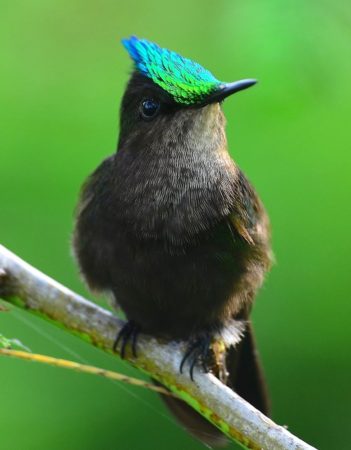
We have all had to adapt to a drastically different way of life in a very short time. One of our partners, the Environmental Awareness Group (EAG) in Antigua and Barbuda, has risen to the challenge and made the best of a difficult situation. They organized an online “Birding for Beginners” course to encourage more people in Antigua to learn about local birds, take up birdwatching as a hobby, and to help with citizen science initiatives in Antigua. Here they describe the course and initial outcomes.
The Environmental Awareness Group (EAG) in Antigua and Barbuda is constantly seeking out means to connect our people with nature. EAG aims to promote a greater understanding of and appreciation for how our natural environment provides essential services that support our very lives.
Much of the work that EAG is involved in promotes the conservation of birds and their habitats. One of our goals is to encourage our residents to go out and become citizen scientists—observing birds, collecting data, and sharing it on a platform that can be used by scientists and decision-makers.
A Virtual Introduction to the World of Birds
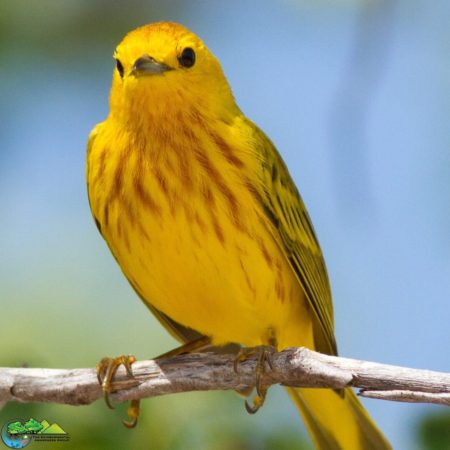
But first, how do we get people to bird, if they don’t know much about the birds? And how do you bird during a pandemic lockdown? The EAG team decided to launch an online Bird Training session called Birding for Beginners, in the month of May. This consisted of six webinars that taught the basics of birding, including identification, behavior, habitat, ecology, Important Bird Areas, monitoring techniques, threats to birds, conservation, and ethical birding.
Antigua and Barbuda is home to numerous species of resident birds, and over one hundred species of migratory birds spend part of their year here. Birds are ubiquitous on our islands; they are found from the mountain tops of the Shekerley mountain range right down to the wave-chasers on our sandy beaches. We have big, imposing raptors and tiny little hummingbirds. We have land birds, shorebirds, wetland birds, and in-between birds!
Getting to Know Birds
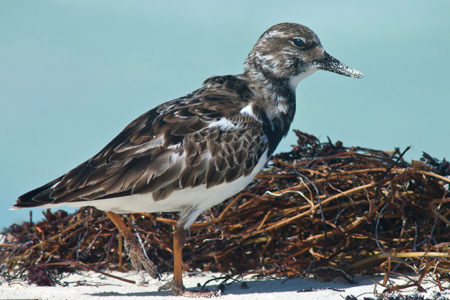
During the webinars, the participants were challenged to learn to identify birds by their shape, size, colour, behaviour and location. For example, one should be able to look at a bird’s bill and decide if it’s a meat-eater, a seed-eater, an insect-eater, a fruit-eater, or otherwise. Some birds glide in flight while others flap. When feeding, some probe and peck, while others snap prey out of the air, or flip over everything in sight. How about their behaviour on the ground? Some run around, some pose majestically with a piercing gaze, and some even “twerk” (bobbing their tail incessantly)!
Participants learned about the important part birds play in our environment. The EAG webinars highlighted some of birds’ vital ecosystem roles. These include keeping the insect population under control, dispersing seeds, pollinating flowers, cleaning up carcasses, advising on the weather, enriching the soil – and even influencing fashion! Participants also learnt about birding “hotspots,” Important Bird Areas and Key Biodiversity Areas across our islands. Examples of these are our offshore islands, Christian Valley, Wallings, McKinnons Pond, and the Codrington Lagoon.
An International Study Group is Born
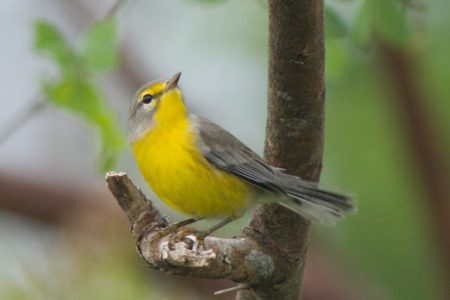
Of course, we also examined identifying common birds, as well as rare birds and resident and migratory species. We highlighted birds of conservation concern due to threats they face, both human-caused (e.g., destruction of their habitats) and natural (e.g., hurricanes). Special mention was made of our endemic Barbuda Warbler, found nowhere else in the world but – Barbuda.
To wrap up the course, participants learned how to implement actions to conserve birds, how to monitor them, and how to use the online applications eBird Caribbean and Merlin to identify birds and store their birding observations.
The participants were eager and enthusiastic, joining EAG via Zoom and Facebook. The interest was greater than expected and they all returned regularly to keep up with the course. Most of our participants were local, but others from across the region joined us – including participants from Anguilla, Saint Lucia, Saint Kitts, and Trinidad and Tobago. Even persons from the UK and US who are regular visitors to the island followed the course!
Inspiration and Support – Thank You!
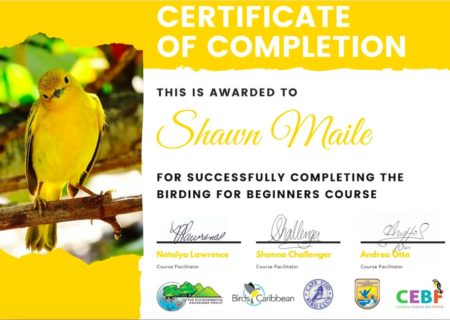
One of the participants, Shawn Maile, shared his thoughts in an article he posted on his LinkedIn: “I jokingly posted a status to say that maybe I should take up birdwatching. Next thing you know, I was signed up for an online birding course in the middle of a pandemic and starting a new hobby.”
He further commented, “Fast forward to the end of the course and I have currently logged over 25 different species of birds. I can no longer walk, drive, run, or simply go outside without seeing, hearing or sensing a bird. Now armed with the skills to identify and count the avian species, I can proudly say I am a certified beginner birder. Armed with my binoculars and ebird app, I forge into the unknown tracking and viewing my winged friends.”
Following the course, we are pleased to announce the formation of our very own bird club, the Wadadli Warblers! Our first team outing occurred last week as we began field training at McKinnons Pond, all while wearing masks. We anticipate building up our team of local contributors who monitor birds and their habitats (e.g., participating in the Caribbean Waterbird Census), traveling the Caribbean islands to see the region’s incredible diversity of birds (there are 171 endemics) – and having fun doing it!
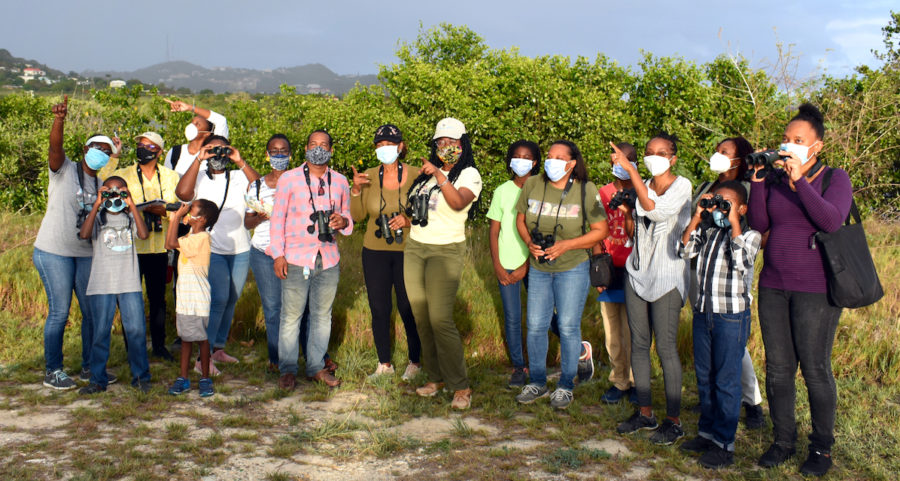
This training opportunity and ongoing mentorship would not have been possible without the support of the U.S. Fish & Wildlife Service (USFWS), the Cape Cod Bird Club, BirdsCaribbean, and the Caribbean Endemic Bird Festival. Our participants were treated to a special appearance by Dr. Herbert Raffaele, former Director at USFWS Division of International Conservation (funding millions of dollars for conservation projects around the world), and award-winning author of several books including the important field guide, “Birds of the West Indies.” Special thanks to Dr. Lisa Sorenson of BirdsCaribbean for her assistance, and for being present at every webinar, supporting the presenters and answering questions.
We urge you to start appreciating our natural world. We urge you to take this time to reconnect to nature. Join the EAG and join the bird club too! For more information, contact us at 268-462-6236 or eagantigua@gmail.com. To donate and support our programs, click here. And enjoy the photo gallery below (click on each photo to see it large and view as a slide show).
Editors Note: Congratulations to the EAG team for this hugely successful and engaging online training. EAG has been a long-time partner of BirdsCaribbean and the 3 facilitators of this course, Natalya Lawrence, Shanna Challenger, and Andrea Otto, have all been active members of BirdsCaribbean. They have participated in our workshops and conferences and have been awarded many grants to carry out education, monitoring, restoration and conservation projects in Antigua and Barbuda. We applaud their enthusiasm, professionalism and sheer hard work to advance awareness, appreciation, and conservation of Antigua and Barbuda’s incredible biodiversity. We encourage you to support the amazing work of the EAG either through membership or a donation.
To learn more, check out the following articles and Youtube videos:
Redonda Rebounded—Magical transformation spells brighter future for Redonda’s wildlife
To Union and Back: A Week of Developing Skills, Facing Fears, and Building Friendships
Loving our Wetlands a Little Bit More: A View from Antigua & Barbuda
Barbuda in Recovery Mode: What Does the Future Hold for Its Endemic Warbler?
Creating the Next Generation of Bird Conservationists
Embracing Nature While ‘Social Distancing’—Earth Day 2020
Simply Antigua Barbuda: A Coffee Table Book That Highlights Sustainable Tourism, Birds and Nature













